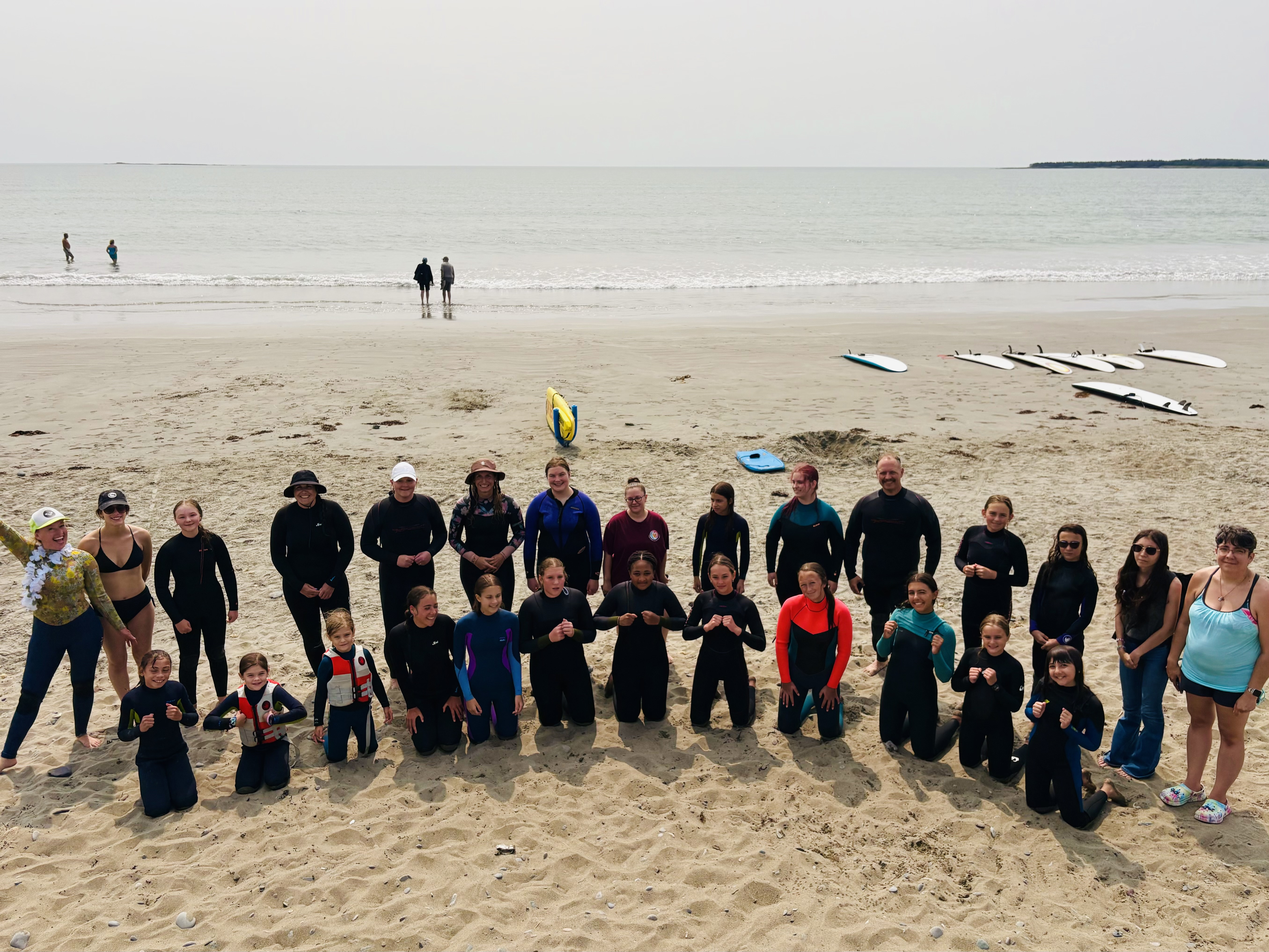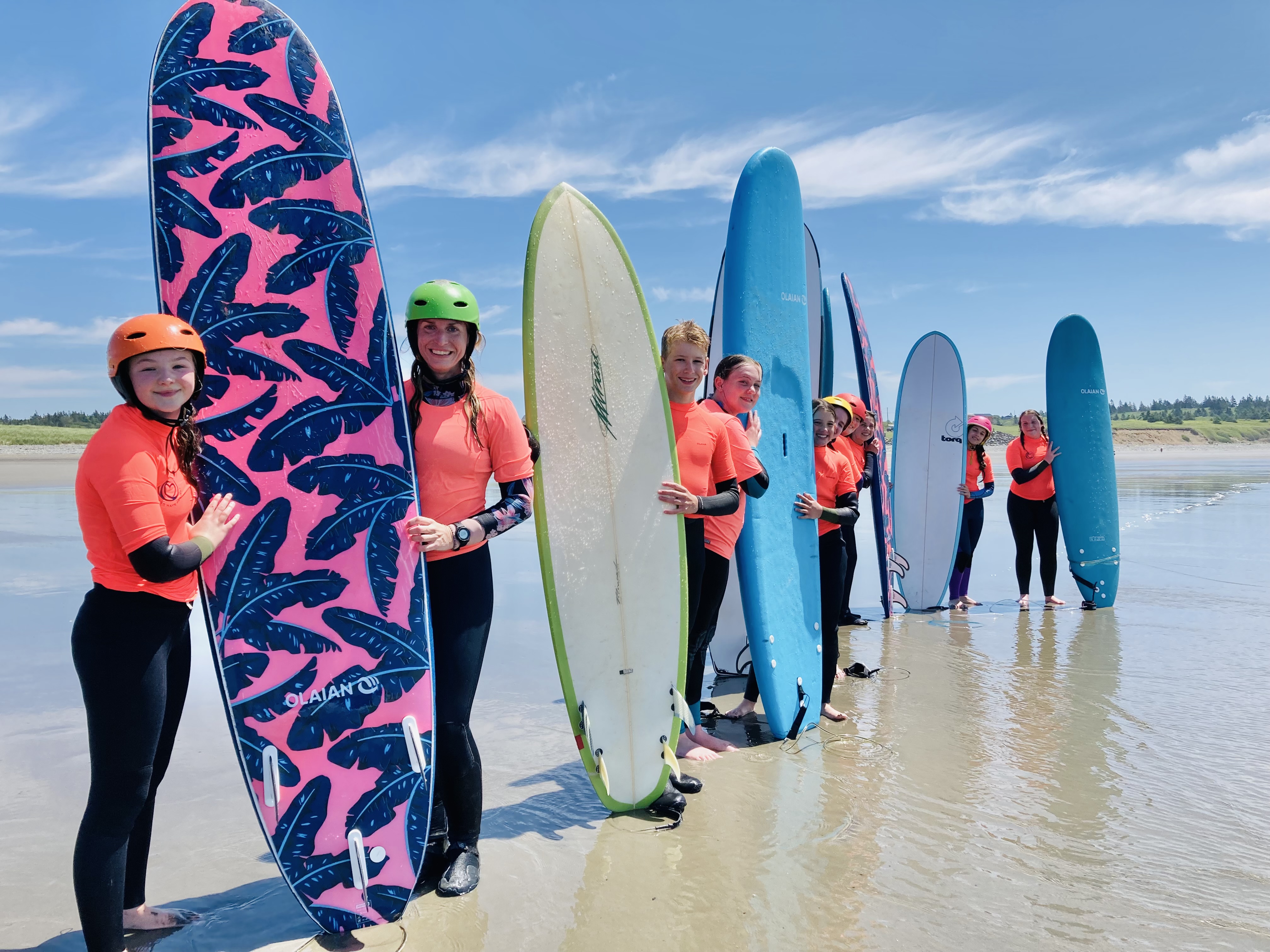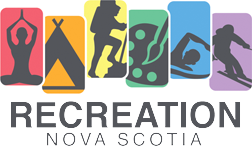"Our daughter had such an incredible experience with Girls on Boards this year. This was her second year learning to surf, and it was so special to see her confidence grow—not only in her own surfing, but also in her ability to support others through the Youth Mentor Clinic. Being able to help teach girls really boosted her awareness of the ocean and her belief in herself. She always looks forward to the next surf night or clinic at the beautiful Mavillette Beach, and she loves being in the water surrounded by such a positive group of girls. I especially value how the multi-age group setting shows that girls of all ages can learn from one another, no matter their experience or age." - Parent
The Surfing Association of Nova Scotia (SANS), founded in 1987, is a community-based, non-profit organization dedicated to fostering an inclusive, respectful, and enjoyable surf culture throughout the province. As a Nova Scotia, Mi'kma'ki, recognized Provincial Sport Organization (PSO) and Provincial Recreation Organization (PRO), SANS supports both recreational and competitive surfing, as well as coastal stewardship and improved access to Nova Scotia's beaches.
 SANS also plays a role in expanding access to surfing for underserved communities. Throughout recent years, their programming, supported by national and provincial funding, brought surf and ocean literacy sessions to Mi'kmaw, Black, and newcomer youth across regions, including Unama'ki, Kespukwik, and Kjipuktuk. Additionally, this past summer, SANS launched a junior girls' surf program, supported by Canadian Women & Sport, to foster gender equity in sport—creating opportunities for young female and non-binary surfers to build skills and confidence.
SANS also plays a role in expanding access to surfing for underserved communities. Throughout recent years, their programming, supported by national and provincial funding, brought surf and ocean literacy sessions to Mi'kmaw, Black, and newcomer youth across regions, including Unama'ki, Kespukwik, and Kjipuktuk. Additionally, this past summer, SANS launched a junior girls' surf program, supported by Canadian Women & Sport, to foster gender equity in sport—creating opportunities for young female and non-binary surfers to build skills and confidence.
Over several weeks, participants engaged in a series of surf practices that went beyond skill-building in the water. These consistent gatherings enabled youth to form deep bonds, steadily improve their surfing skills, and develop both self-confidence and a sense of empowerment over time. Each session was facilitated by EDIA and ISA Adaptive Surf Instruction-certified SANS Board Members, who each brought expertise in both technical coaching and inclusive mentorship. The youth in Kespukwik were trained as Youth Surf Mentors and helped plan and lead surfing activities for other girls, youth, and organizations in their community (namely SHYFT House and Autism NS).
Participants were provided with equipment, food, water, and program supplies—including changing ponchos to facilitate frequent changes between wetsuits and dry clothes. Reflection activities and group discussions encouraged personal growth, while shared meals and gatherings fostered connection and celebration.
This program culminated in a weekend surf retreat in Unama'ki, where families were invited to join. This retreat offered intensive skill development, furthered peer bonding, and maximized impact through community connection. For some youth, the program also included earning Bronze Star certifications and ILS Surf and Ocean Rescue certification, equipping them with nationally recognized lifesaving and leadership skills.
Programs such as this are vital: in Canadian university sport, women account for only 26% of head coaches for women's teams, 18% of mixed-gender teams, and just 3% of men's teams. By centering equity and empowerment at the grassroots level, SANS is helping to shift these systemic disparities and inspire the next generation of diverse surf and recreation leaders in Mi'kma'ki.
The junior girls' and non-binary youth surf program fostered growth in participants both on and off the waves. Youth were able to gain confidence not only in surfing techniques but also in expressing themselves socially within the group. Providing a consistent, safe and inclusive space was central to the program's success. By ensuring that participants felt respected, supported, and seen, SANS created a space where youth could explore leadership, decision-making, and teamwork without fear of judgement or bias. This nurturing environment strengthened participants' sense of belonging, highlighting the importance of community and peer support in sustaining engagement with sport.
The program also made women and non-male leaders visible in action. Seeing SANS' women board members actively guiding, coaching, and mentoring demonstrated to youth that leadership is attainable and not confined by gender. This modeling presented participants with new possibilities for themselves, encouraging them to envision future roles in surf culture and beyond.
SANS was able to deliver the junior girls' surf program through partnerships with: Clare Girls On Boards/The Good Wave Project, Richmond County Recreation, Autism NS Southwest Chapter and SHYFT House, resources from Canadian Women & Sport – Gender Equity in Coaching and Playbook; and funding from Canadian Women & Sport, the Province of Nova Scotia's Active Community Fund and Canadian Tire JumpStart.
For those looking to facilitate similar recreation programs, the SANS leaders shared the following advice: "Start by listening to and consulting with the youth and the communities you intend to serve. Too often, programs are designed based on assumptions rather than actual needs, which can unintentionally create gaps, insensitivity, or barriers to participation. Engaging participants in co-design—asking them what support, resources, and experiences would be most meaningful—ensures the program is relevant, accessible, and empowering from the outset."
It is also crucial to provide safe and inclusive spaces where participants feel respected and empowered to take risks, make mistakes, and express themselves genuinely. Prioritizing flexibility, reflection, and responsiveness throughout programming cultivates an ongoing dialogue with participants, ensuring that their evolving needs are met.
Do you have a promising practice or success story you would like to share with the recreation sector? Contact Kerri Jack at
















